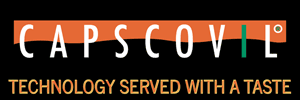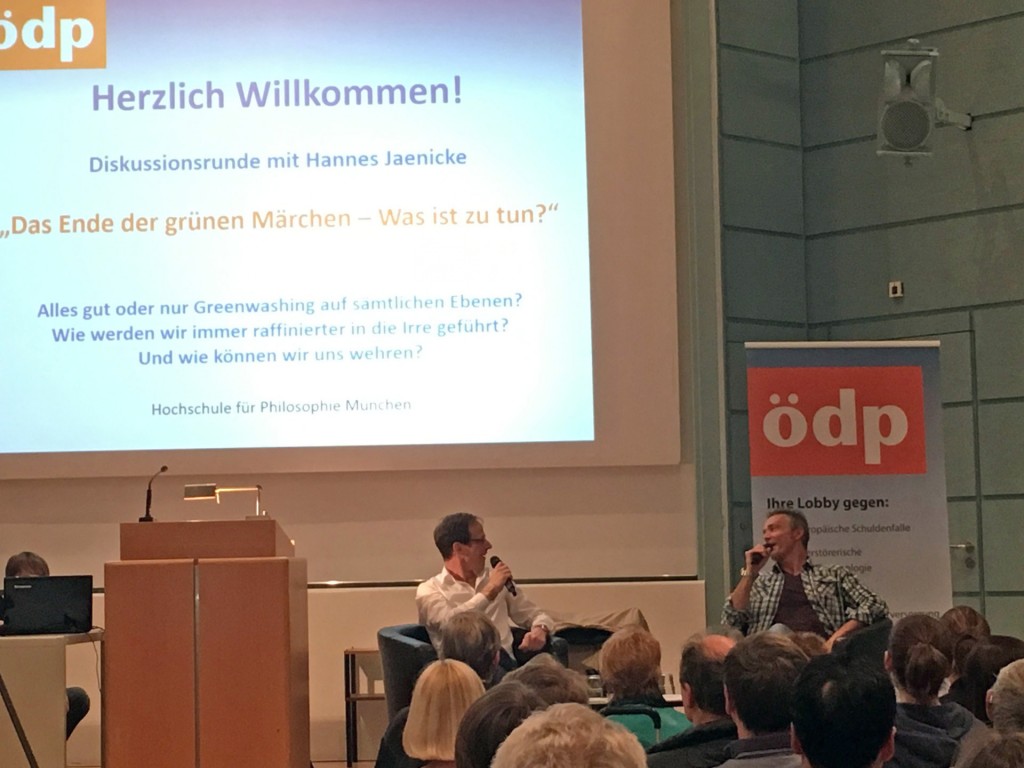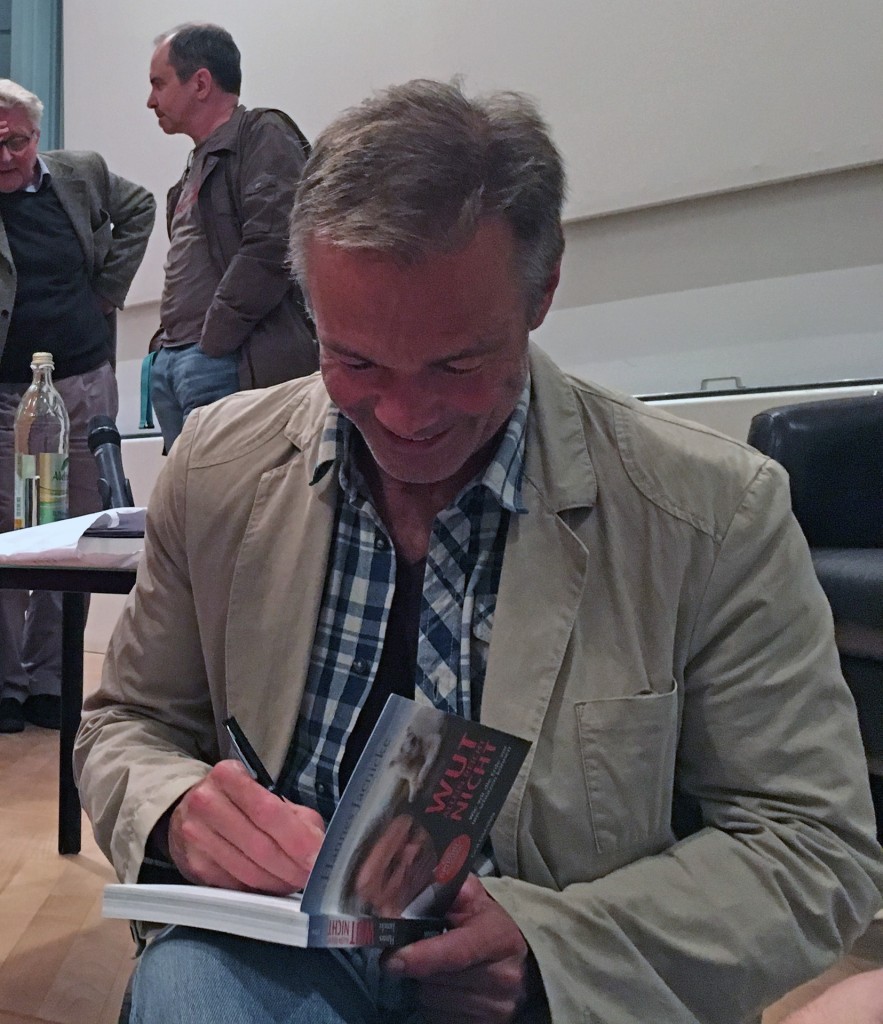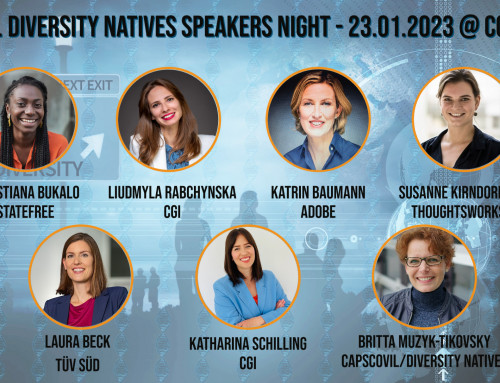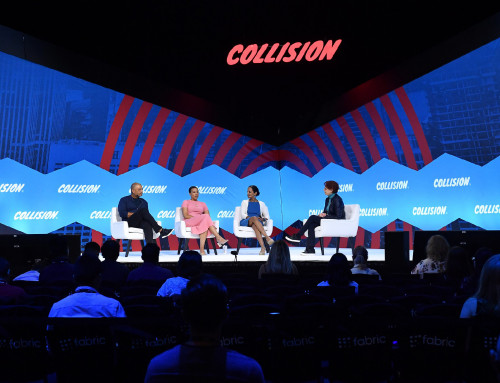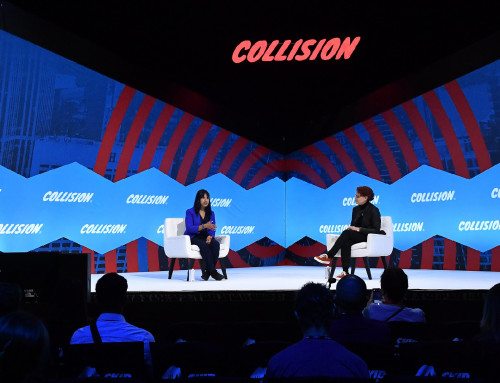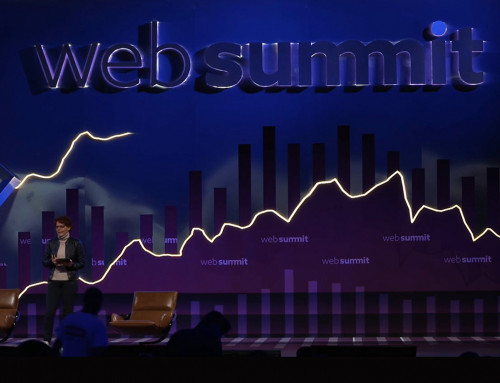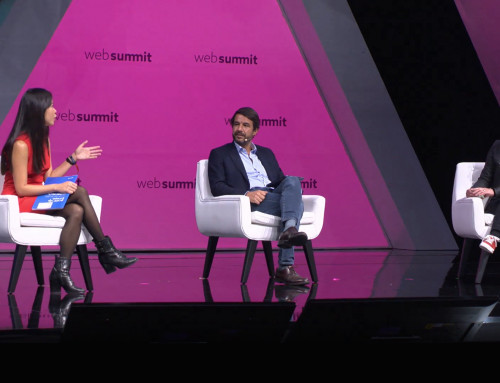Glonn, 1st May 2016 (published with the help of Ren Hui Ueltzhoefer)
On April 21, the ÖDP in Munich invited Hannes Jaenicke- actor, writer, film director and environmental activist – for a round of discussion. The event in the auditorium of the Munich School of Philosophy was fully booked and filled with people from all walks of life. People from the 60’s generation mingled with students, vegans, animal welfare activists and those who were just curious and interested in the topic.
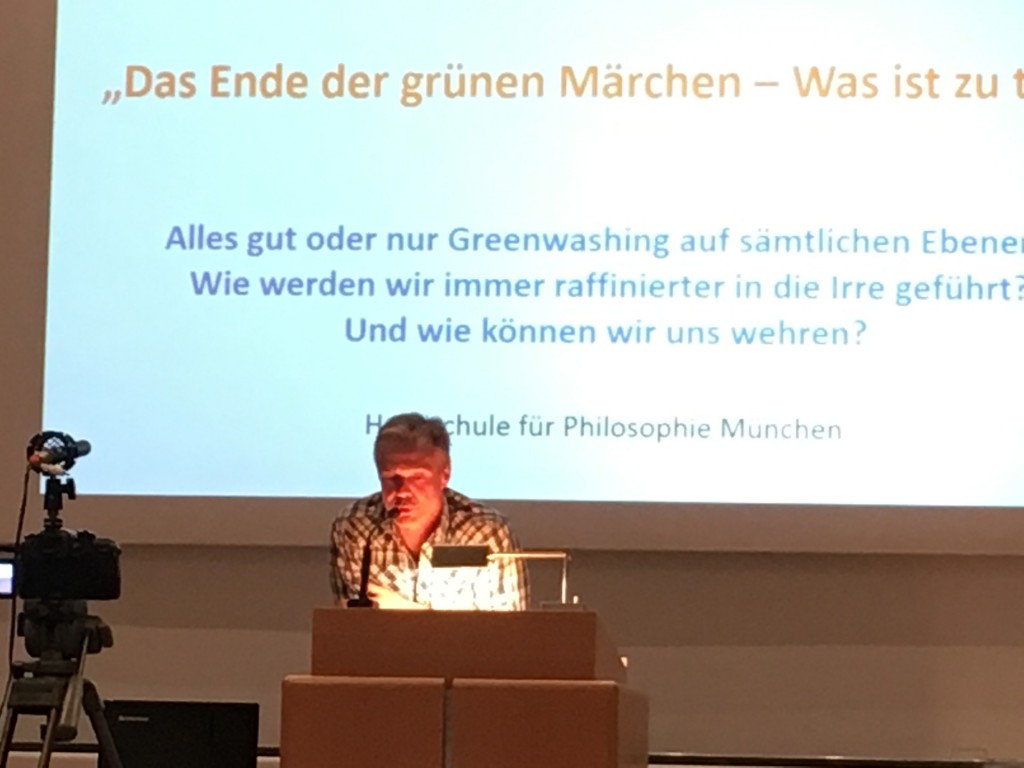 The charismatic actor kept his cool despite the small, factual slip-ups of the ÖDP vice-chairman Klaus von Birgelen and initial microphone hiccups. After all, in comparison to his main topics, things like these are just dust in the wind. It is more important to Hannes Jaenicke to use his profession and his social position to raise awareness on environmental issues and motivate people to take action. Raging against those who brain-fuck* the people just won’t do. That is not enough, according to the bestselling author. Every single person can have an impact on their environment, if they start looking at their own consumption. Controlling how they use their money is a great weapon to fight environmentally-irresponsible companies. At the same time, the film director is brutally honest about his own behavior and weighs his actions against the environmental impact they have. There is no black-and-white thinking, and for the gray areas, it is important to have honest advocates.
The charismatic actor kept his cool despite the small, factual slip-ups of the ÖDP vice-chairman Klaus von Birgelen and initial microphone hiccups. After all, in comparison to his main topics, things like these are just dust in the wind. It is more important to Hannes Jaenicke to use his profession and his social position to raise awareness on environmental issues and motivate people to take action. Raging against those who brain-fuck* the people just won’t do. That is not enough, according to the bestselling author. Every single person can have an impact on their environment, if they start looking at their own consumption. Controlling how they use their money is a great weapon to fight environmentally-irresponsible companies. At the same time, the film director is brutally honest about his own behavior and weighs his actions against the environmental impact they have. There is no black-and-white thinking, and for the gray areas, it is important to have honest advocates.
The burning issues concern humanity as one and the actor addresses the topics in one of his two recent books: global warming, overfished oceans and the extinction of many animal species. Hannes Jaenicke uses films suitable for the masses to draw attention to environmental issues. Animal documentaries which are bound to attract a lot of attention are a good medium to transport the topics. Animal protection is always human protection, because the habitats affect indigenous tribes as well. One of the most important goals, besides the reduction of CO2 emissions, needs to be rainforest protection. Today, 80 percent of deforestation is still illegal, and logged wood like teak is used for cheap furniture offered by IKEA and similar companies. In Madagascar, 96 percent of the forest are already gone. In Indonesia, huge areas continue to fall victim to new oil palm plantations. The fast growing plant is considered an economic miracle and it’s oil can be found in almost everything that is consumed today: food, skin care, lip balms, shower gels or detergent or even in candles; just to name a few. It’s another type of oil lighting up big dollar signs in the eyes of many companies.
For several years now, palm oil has even been used to power so-called environmentally-friendly thermal power stations. This is far from being green. This is greenwashing, something that has become a popular sport. Palm oil is also used to produce biodiesel. One can only hope that the emissions scandal involving Volkswagen and Co. does its bit to reduce consumption. This would help the orang-utans. While these innocent monkeys have to fear for their life, the actor questions why some remote relatives such as a certain Mr Winterkorn, who has knowingly poisoned people in urban areas, is still at large. A clear indication for this is the weak spot of politics- lobbying.
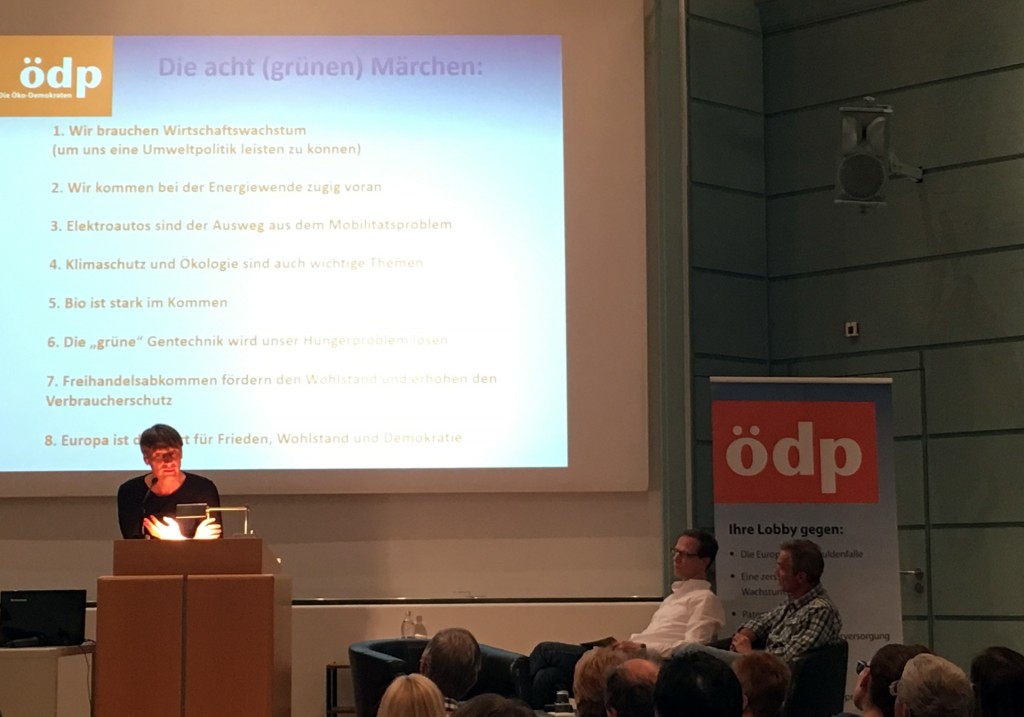 Another point Hannes Jaenicke becomes emotional about is when he thinks of dead orcas that are dumped into landfills. The animals are full of heavy metals and plastic and therefore must be removed from the ocean’s food chain. Many people have seen pictures of gigantic garbage patches in the ocean. However, the actor is far from bitching and moaning. He argues and motivates. He proposes solutions: REDUCE, REUSE, AND RECYCLE. What do we really need to live and be happy? This is the major question. Which products should we buy from whom? Gathering information on products helps. For example, certificates on where and how something was produced, help to make good buying decisions. It’s also important to know which products and materials can be recycled. Clothing out of cotton is not among them. Therefore, it makes good sense to spend a little more money on fewer, but of higher quality cloths, rather than buying tons of T-shirts from low-priced Primark and the likes. Those items are cheap in every aspect and still produced under inhumane circumstances. Tight is neither right nor good at this point. The actor explained that he still owns and wears clothing, including items from a brand called Patagonia, which is over 20 years old. A message bought by many.
Another point Hannes Jaenicke becomes emotional about is when he thinks of dead orcas that are dumped into landfills. The animals are full of heavy metals and plastic and therefore must be removed from the ocean’s food chain. Many people have seen pictures of gigantic garbage patches in the ocean. However, the actor is far from bitching and moaning. He argues and motivates. He proposes solutions: REDUCE, REUSE, AND RECYCLE. What do we really need to live and be happy? This is the major question. Which products should we buy from whom? Gathering information on products helps. For example, certificates on where and how something was produced, help to make good buying decisions. It’s also important to know which products and materials can be recycled. Clothing out of cotton is not among them. Therefore, it makes good sense to spend a little more money on fewer, but of higher quality cloths, rather than buying tons of T-shirts from low-priced Primark and the likes. Those items are cheap in every aspect and still produced under inhumane circumstances. Tight is neither right nor good at this point. The actor explained that he still owns and wears clothing, including items from a brand called Patagonia, which is over 20 years old. A message bought by many.
What he does not quite buy into, however, is one of the eight ‘green myths’ presented by ÖDP board member Thomas Prudio: the point that electric cars are not a way out of the mobility crisis. The actor, who shares a BMW i3 electric car with his cameraman, sees a good solution in the combination of electric vehicles and car sharing. Hannes Jaenicke tries to be a role model in his field and is aware that, on television, he competes against Dieter Bohlen and Heidi Klum. No easy task, as he found out especially during his documentary “Commitment for…” (Original: “Im Einsatz für …”). For almost one and a half years, he canvassed all television channels to win them for his self-funded documentaries. He finally convinced the Second German Television (ZDF), on the second attempt, and is very grateful for the cooperation. The biggest obstacles he encountered are on one hand the nearly monopoly position of the BBC, from whom most television channels source their documentaries. On the other hand, there are the mind candy programs of the private television channels.
Like a David versus Goliath, the actor takes a stand for more education. In his opinion, it is a growth area that requires attention in Germany. Good education enables people to engage critically in discussions and scrutinize marketing messages. Good education makes it possible to increase research – many cases of animal testing can be replaced by computer simulations today – and to find solutions. A solution regarding the devastating state of the rainforest is to accelerate reforestation by offering an incentive. The income of people planting trees must be higher than that of their colleagues chopping them down. That is money out of somebody’s pocket. A pocket that everybody of us, through our consumption and spending choices, has an influence on.
Informationen on the books of Hannes Jaenicke can be found here:
Wut allein reicht nicht
The actor also has a profile on Facebook
*referring to his book “Die große Volksverarsche”
